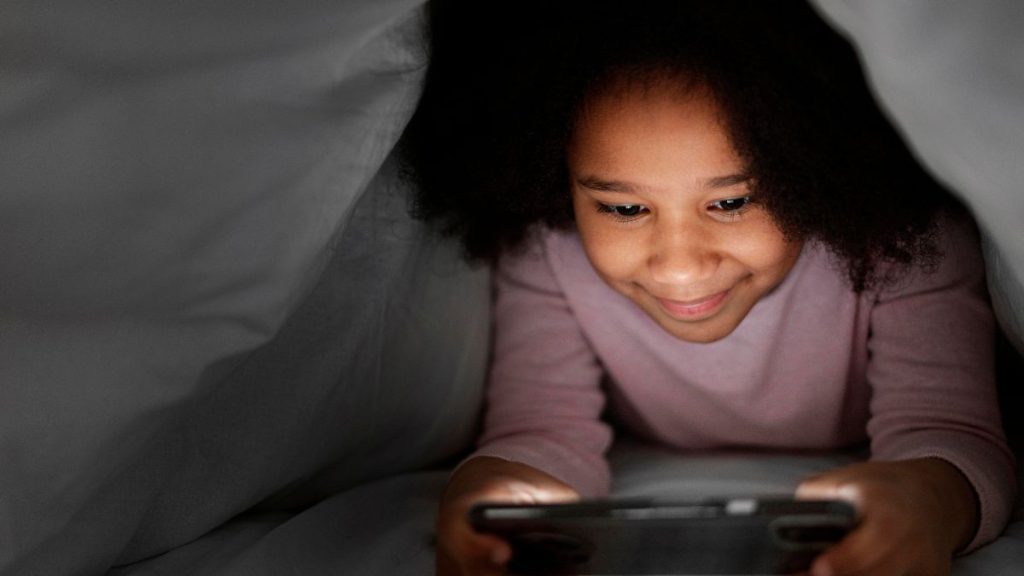In recent years, smartphones before age 13 have become a point of debate among parents, educators, and health professionals. With rising concerns over screen time, mental health, and learning outcomes, many families ask: Is early smartphone access safe?
Thank you for reading this post, don't forget to subscribe!Global and local evidence suggests that smartphones before age 13 may harm kids’ mental health, especially when use is unsupervised. While technology connects children to opportunities, it can also expose them to risks such as cyberbullying, sleep loss, and social media pressures.
Looking for family balance? Discover how to create a simple holiday routine for kids at home.
The Age of First Smartphone: A Defining Moment

The age at which children receive their first smartphone shapes their digital habits. Increases in social media use during early adolescence predicted higher depressive symptoms a year later.
This evidence suggests that the earlier children gain access, the higher the risks of negative emotional effects.
Expert Warnings from Public Health Leaders
The General’s Advisory on Social Media and Youth Mental Health makes a strong point:
“We cannot conclude that social media is sufficiently safe for children and adolescents.”
It further notes that children who spend over three hours daily on social media face double the risk of developing mental health issues such as depression and anxiety.
WHO: Problematic Use Is on the Rise
The World Health Organization (WHO) Europe reported a rise in problematic social media use among 11–15-year-olds—from 7% in 2018 to 11% in 2022. This pattern links to less sleep, later bedtimes, and reduced well-being. WHO warns that urgent attention is needed to protect young people.
Smartphones Before Age 13 in the South African Context
Stellenbosch University surveyed 2,195 South African adolescents across 25 schools. The study revealed that:
- Almost all teens own smartphones.
- They spend an average of 197 minutes (3 hours, 17 minutes) daily on their devices.
- Girls use social media more than boys.
- Most learners bring phones to school.
These findings highlight that the issue is not just global, it’s highly relevant in South Africa.
Schools Are Taking Action
The Western Cape Education Department (WCED) updated its guidelines on mobile phone use in schools in 2024. The goal is to help schools develop policies that balance digital learning with cyber-safety risks. The department stresses the importance of safeguarding learners from distractions, bullying, and mental health impacts.
Why Smartphones Before Age 13 May Harm Kids’ Mental Health

Experts identify several pathways through which early smartphone use can affect mental well-being:
- Sleep Disruption: Notifications and late-night scrolling interfere with rest.
- Cyberbullying: Early users are more vulnerable to online harassment.
- Social Comparison: Exposure to unrealistic images fuels low self-esteem.
- Addictive Behaviour: Problematic patterns mirror other forms of dependency.
Each factor increases the risks of anxiety, depression, and behavioural difficulties in young children.
For more practical health advice, read our guide where doctors share easy daily tips to lower high blood pressure.
The Debate: Is There a “Smoking Gun”?
Not all research points to widespread harm. A 2023 study by the University of Oxford’s Internet Institute analysed internet adoption across 200 countries. The researchers found no clear ‘smoking gun’ linking internet access to declining mental health. However, they stressed that risks may concentrate in vulnerable subgroups or depend on the type of use.
This nuance reminds us that not all screen time is equal. Educational use can support learning, while unsupervised social media is more concerning.
Parents’ Role: Guidance and Boundaries
Parents can reduce risks by:
- Delaying smartphones until children are emotionally ready.
- Setting family media plans that limit screen time.
- Keeping devices out of bedrooms at night.
- Teaching children digital literacy and resilience.
Such measures help balance the benefits of connectivity with the risks of overexposure.
What Policymakers Are Considering
Globally, policymakers are weighing restrictions on early social media use. In South Africa, growing concerns could push provinces to consider national guidance, much like the WCED example. Experts argue that collaborative efforts between schools, parents, and policymakers are essential to protect children.
The Bottom Line for South African Families
The evidence is clear: smartphones before age 13 may harm kids’ mental health, especially when linked to problematic patterns. While not every child is affected in the same way, the risks of sleep loss, cyberbullying, and emotional distress are real.
Delaying smartphone access, setting boundaries, and encouraging healthier digital habits can make a difference. In South Africa, where smartphone penetration among youth is almost universal, the challenge is urgent but not insurmountable.
Worried about children’s health? Learn the warning signals in our guide: Is Your Child Having a Stroke? Key Signs Every Parent Should Know.
Towards a Balanced Digital Future
Technology is here to stay. The task for families, educators, and policymakers is to strike a balance that protects children’s mental health. As evidence mounts, the safest path may be delaying smartphones before age 13 while building stronger safeguards for those already online.




